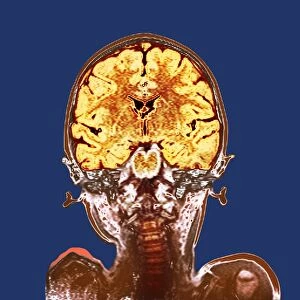Home > Science > Scientists
Citrus greening disease research C018 / 6323
![]()

Wall Art and Photo Gifts from Science Photo Library
Citrus greening disease research C018 / 6323
Citrus greening disease research. Scientists performing a genetic (DNA) analysis of populations of psyllid insects collected in North and South America. These insects transmit the bacteria that causes citrus greening disease. Also known as huanglongbing, this disease causes mottled leaves and small, bitter fruits that remain partly green even when ripe. It is transmitted by the Asian citrus psyllid (Diaphorina citri). There is no cure. This analysis is intended to help identify natural enemies of the Asian citrus psyllid for use in a biological control program
Science Photo Library features Science and Medical images including photos and illustrations
Media ID 9233011
© PEGGY GREB/US DEPARTMENT OF AGRICULTURE/SCIENCE PHOTO LIBRARY
2001 Agricultural Agriculture Analysing Analyzing Bacterial Farming Hispanic Molecular Biology North American Plant Disease Plant Pathology Researcher Researchers Researching Scientist Scientists Screen Technician Biochemical Biochemistry Condition Deoxyribonucleic Acid Department Of Agriculture Disorder Genetics Laboratory Pathogen
EDITORS COMMENTS
This print captures the dedicated efforts of scientists engaged in citrus greening disease research. In this image, researchers can be seen meticulously performing a genetic analysis of populations of psyllid insects collected from North and South America. These tiny insects play a crucial role in transmitting the bacteria responsible for citrus greening disease, also known as huanglongbing. Citrus greening disease inflicts devastating effects on citrus plants, causing mottled leaves and stunted growth with small, bitter fruits that remain partially green even when ripe. Unfortunately, there is no cure for this destructive condition that poses a significant threat to agriculture. The purpose of this DNA analysis is to identify natural enemies of the Asian citrus psyllid, such as predators or parasites, which could potentially be used in biological control programs against these harmful insects. By studying their genetics and behavior closely, scientists hope to develop effective strategies to combat the spread of citrus greening disease. In this modern laboratory setting filled with cutting-edge equipment and advanced technology, male and female researchers work together tirelessly towards finding solutions for this agricultural crisis. Their expertise in molecular biology and genetics enables them to delve deep into the intricate world of plant pathology and bacterial pathogens. Led by scientists like Jesse De Leon and Marissa Gonzalez at the US Department of Agriculture's Agricultural Research Service (ARS), these diligent individuals strive to unravel the mysteries surrounding citrus greening disease while contributing valuable knowledge that may safeguard our precious crops for generations to come.
MADE IN THE UK
Safe Shipping with 30 Day Money Back Guarantee
FREE PERSONALISATION*
We are proud to offer a range of customisation features including Personalised Captions, Color Filters and Picture Zoom Tools
SECURE PAYMENTS
We happily accept a wide range of payment options so you can pay for the things you need in the way that is most convenient for you
* Options may vary by product and licensing agreement. Zoomed Pictures can be adjusted in the Basket.




